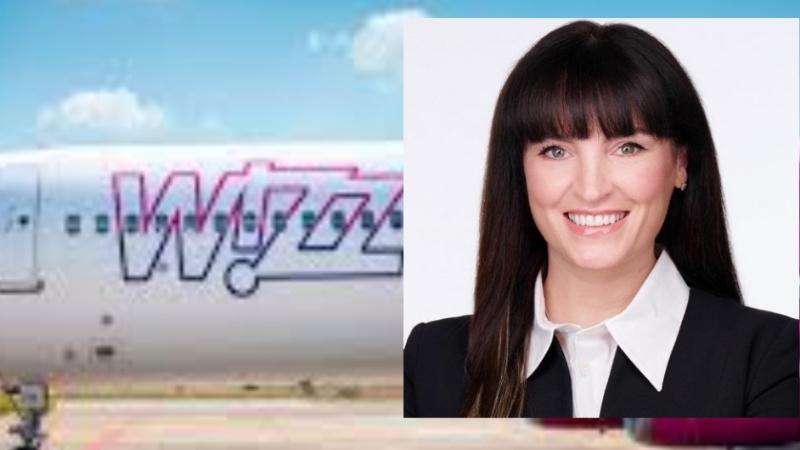[caption id="attachment_1719" align="alignleft" width="2560"]
 FILE PHOTO: European Union flags flutter outside the European Commission headquarters in Brussels, Belgium, June 5, 2020. REUTERS/Yves Herman/File Photo
FILE PHOTO: European Union flags flutter outside the European Commission headquarters in Brussels, Belgium, June 5, 2020. REUTERS/Yves Herman/File Photo[/caption]
The European Travel Information and Authorization System (ETIAS), which will become effective next year, may bring new difficulties after travellers, travel agencies and authorities may not be prepared, travel industry experts have warned.
Under the ETIAS system, travellers from more than 60 countries, including the United States, United Kingdom, and New Zealand, who are eligible to travel visa-free to the EU will be subject to a €7 fee, in order to enter.
The applicant's passport must expire before the ETIAS travel permit expires or after three years, whichever comes first. Additionally, ETIAS authorizations are given for several visits, so travellers may use them as often as they like as long as they don't go over the allotted duration of stay.
Greek Travel Pages reports that even though the majority of applications will be processed quickly once the ETIAS is in place, those who don't get approved will either not be allowed to board their flights or will be turned away at EU borders. This would necessitate changing your vacation arrangements and potentially asking for a refund.
In order to ensure that their clients are aware of the repercussions of non-compliance, technology and travel experts urge intermediaries to keep educated on visa and entrance requirements as well as to give clear assistance in this area.
In order to maintain uniform procedures and reactions, they also stress the significance of employee training and clear instructions.
However, market analysts predict that travellers' lack of planning will result in more cancellations and refund requests, which would negatively impact the travel sector. Market experts advise organisations to choose a cost-effective payment technology that can manage interruptions without incurring major costs and time delays in such circumstances.
According to industry experts, the new ETIAS mandate may potentially result in new possibilities. Among these, it could be necessary for travel issuing businesses to create plans that are more specialised and reasonably priced. Hotels may increase their revenue by charging a fee for visa help services or by utilising the interaction to increase sales of other goods.
The ETIAS system's debut has been delayed a number of times. However, the EU officials stated in February of this year that the system will go into operation in 2024. Anitta Hipper, the spokeswoman for home affairs, immigration, and internal security for the EU Commission, confirmed the statement.
 FILE PHOTO: European Union flags flutter outside the European Commission headquarters in Brussels, Belgium, June 5, 2020. REUTERS/Yves Herman/File Photo[/caption]
The European Travel Information and Authorization System (ETIAS), which will become effective next year, may bring new difficulties after travellers, travel agencies and authorities may not be prepared, travel industry experts have warned.
Under the ETIAS system, travellers from more than 60 countries, including the United States, United Kingdom, and New Zealand, who are eligible to travel visa-free to the EU will be subject to a €7 fee, in order to enter.
The applicant's passport must expire before the ETIAS travel permit expires or after three years, whichever comes first. Additionally, ETIAS authorizations are given for several visits, so travellers may use them as often as they like as long as they don't go over the allotted duration of stay.
Greek Travel Pages reports that even though the majority of applications will be processed quickly once the ETIAS is in place, those who don't get approved will either not be allowed to board their flights or will be turned away at EU borders. This would necessitate changing your vacation arrangements and potentially asking for a refund.
In order to ensure that their clients are aware of the repercussions of non-compliance, technology and travel experts urge intermediaries to keep educated on visa and entrance requirements as well as to give clear assistance in this area.
In order to maintain uniform procedures and reactions, they also stress the significance of employee training and clear instructions.
However, market analysts predict that travellers' lack of planning will result in more cancellations and refund requests, which would negatively impact the travel sector. Market experts advise organisations to choose a cost-effective payment technology that can manage interruptions without incurring major costs and time delays in such circumstances.
According to industry experts, the new ETIAS mandate may potentially result in new possibilities. Among these, it could be necessary for travel issuing businesses to create plans that are more specialised and reasonably priced. Hotels may increase their revenue by charging a fee for visa help services or by utilising the interaction to increase sales of other goods.
The ETIAS system's debut has been delayed a number of times. However, the EU officials stated in February of this year that the system will go into operation in 2024. Anitta Hipper, the spokeswoman for home affairs, immigration, and internal security for the EU Commission, confirmed the statement.
FILE PHOTO: European Union flags flutter outside the European Commission headquarters in Brussels, Belgium, June 5, 2020. REUTERS/Yves Herman/File Photo[/caption]
The European Travel Information and Authorization System (ETIAS), which will become effective next year, may bring new difficulties after travellers, travel agencies and authorities may not be prepared, travel industry experts have warned.
Under the ETIAS system, travellers from more than 60 countries, including the United States, United Kingdom, and New Zealand, who are eligible to travel visa-free to the EU will be subject to a €7 fee, in order to enter.
The applicant's passport must expire before the ETIAS travel permit expires or after three years, whichever comes first. Additionally, ETIAS authorizations are given for several visits, so travellers may use them as often as they like as long as they don't go over the allotted duration of stay.
Greek Travel Pages reports that even though the majority of applications will be processed quickly once the ETIAS is in place, those who don't get approved will either not be allowed to board their flights or will be turned away at EU borders. This would necessitate changing your vacation arrangements and potentially asking for a refund.
In order to ensure that their clients are aware of the repercussions of non-compliance, technology and travel experts urge intermediaries to keep educated on visa and entrance requirements as well as to give clear assistance in this area.
In order to maintain uniform procedures and reactions, they also stress the significance of employee training and clear instructions.
However, market analysts predict that travellers' lack of planning will result in more cancellations and refund requests, which would negatively impact the travel sector. Market experts advise organisations to choose a cost-effective payment technology that can manage interruptions without incurring major costs and time delays in such circumstances.
According to industry experts, the new ETIAS mandate may potentially result in new possibilities. Among these, it could be necessary for travel issuing businesses to create plans that are more specialised and reasonably priced. Hotels may increase their revenue by charging a fee for visa help services or by utilising the interaction to increase sales of other goods.
The ETIAS system's debut has been delayed a number of times. However, the EU officials stated in February of this year that the system will go into operation in 2024. Anitta Hipper, the spokeswoman for home affairs, immigration, and internal security for the EU Commission, confirmed the statement.







.svg)
